International Whale Shark Day
Whale sharks are the largest member of the shark family and the largest fish in the world. Weighing up to 20 tonnes, they can grow up to 14 m long – that’s as long as a school bus! However, these pelagic animals do not evoke the same fearful reaction in us as their smaller cousins do, instead, they are arguably the most gentle giant you’ll meet. Their relaxed demeanour and enormous size could be what inspired their somewhat confusing name, as they are not related to whales in any way.
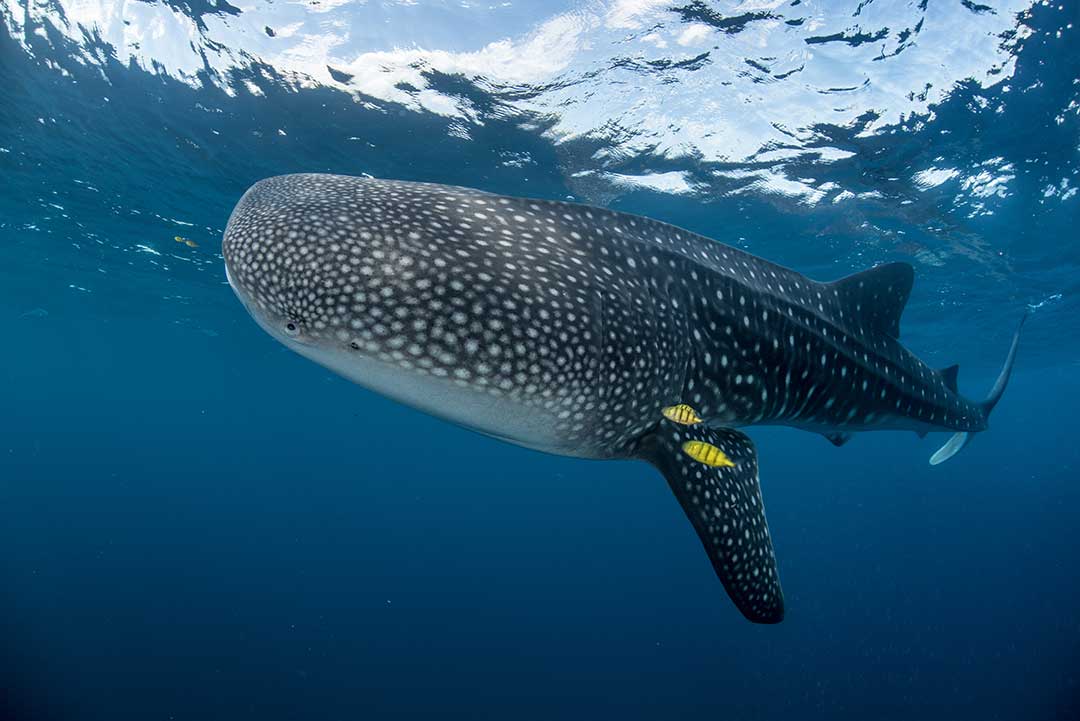
Photo © Byron Dilkes.
Each year on the 30th of August we shine a spotlight on these incredible creatures. Living in warm waters around the world, whale sharks are filter feeders rendering their 3,000 tiny (around 5 mm long) teeth, of not much use while they spend their days hoovering up not only plankton and fish eggs but also small fish and squid. Being filter feeders means they filter thousands of litres of water through their gills to catch their food. Since they only reach maturity at the age of 25 it’s no surprise that their sole focus in their younger years is food, fuelling an epic growth spurt from 55–64 cm at birth to over 14 m, requiring an equally epic proportion of food!
Why do we celebrate Whale Shark Day?
Whale Sharks are listed as Endangered, which means that they are at risk of extinction in the wild. International Whale Shark Day is used to highlight their wonder, their role in keeping our ocean ecosystems healthy and balanced – and the threats they face so that we can collectively work to make sure we do not lose these disappearing giants.
In the last 75 years, whale shark populations have declined by an estimated 63%, meaning there’s a lot of work to be done raising awareness for whale sharks and their situation.
Overfishing, habitat loss, climate change, slow reproduction and even improperly managed tourism all pose threats to their population.
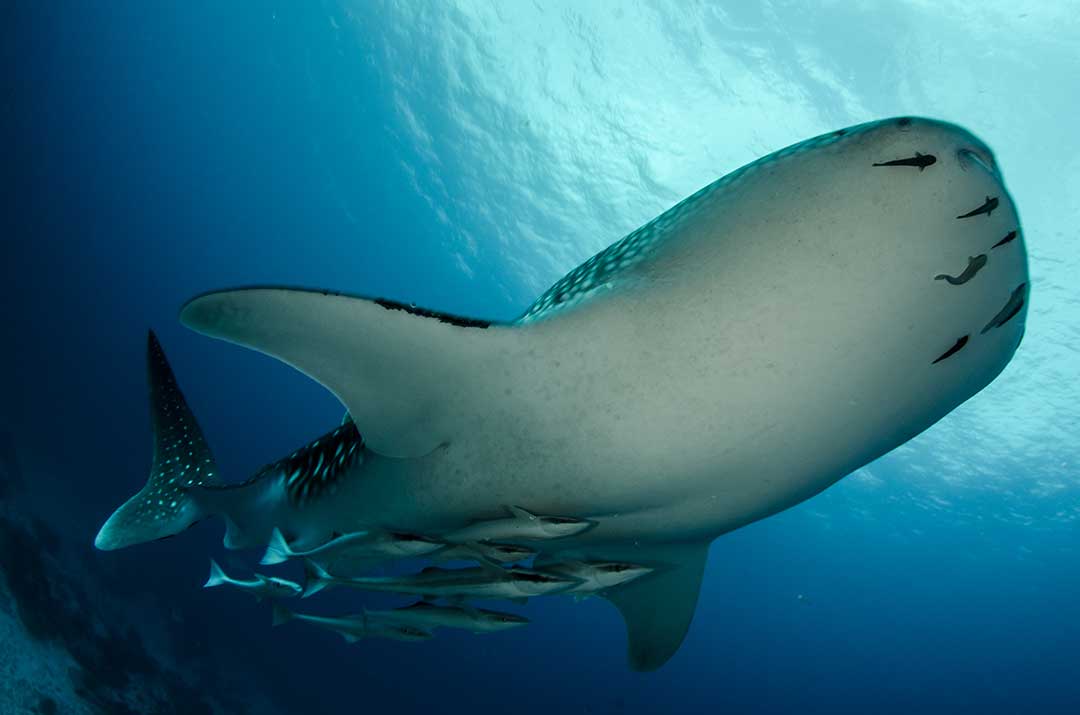
Photo © Byron Dilkes
Over-Fishing
Whale sharks are hunted for both their fins and their meat and are being overfished in some parts of the world. These gentle giants are also subject to the unfortunate effects of bycatch – often finding themselves in the wrong place at the wrong time while feeding and end up caught in fishing nets.
Habitat Loss and Climate Change.
As with many marine species, their lives are dictated by their environment which is a carefully balanced ecosystem. Climate change, invasive species, and pollution have all contributed to the degradation of the whale sharks’ habitat. These sharks only reach sexual maturity at the age of 25 and the negative effects on their reproduction and habitat have a devastating effect on the population.
Tourism and interactions with humans
Tour operators that take people swimming with these big beauties can be key to their conservation as through sustainable tourism they are worth much more alive than dead. However, they can be at risk of boat strikes and too much interaction can disturb the whale sharks and drive them away from important areas on their migratory path. Make sure to choose a responsible dive operator and stick to these rules.
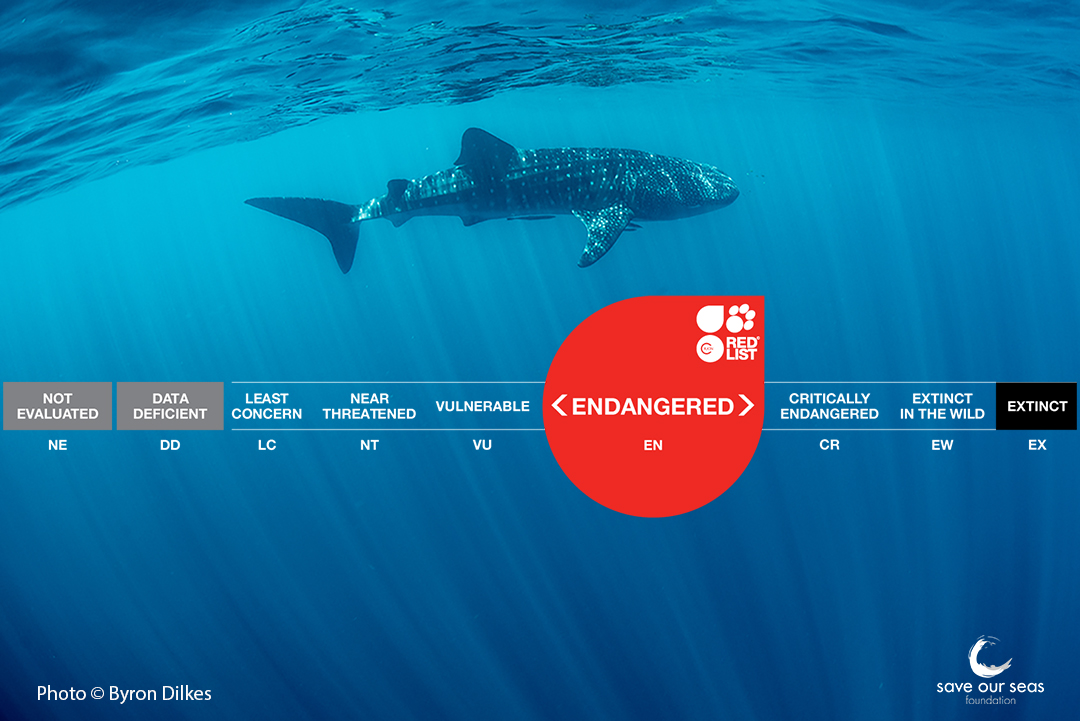
The IUCN Red List classifies whale sharks as Endangered. The IUCN is the global authority on the threatened status of the natural world and the measures needed to safeguard it. The organisation classifies species ranging from Least Concern to Extinct. Photo © Byron Dilkes.
What is being done to help Whale Sharks?
There is a global network of researchers and passionate individuals working to ensure a sustainable future for whale sharks – trying to find out where they go, when and why, and communicating that information to policymakers. They come together every year for the International Whale Shark Conference to share expertise on how best to help this magnificent fish.
The Save Our Seas Foundation has a long history of supporting whale shark research and is very proud to have two of our current project leaders out in the field researching and discovering new information about whale sharks. Projects like these highlight threats to this species and those closest to them which allows for structural change and additional protections to be made for the species.
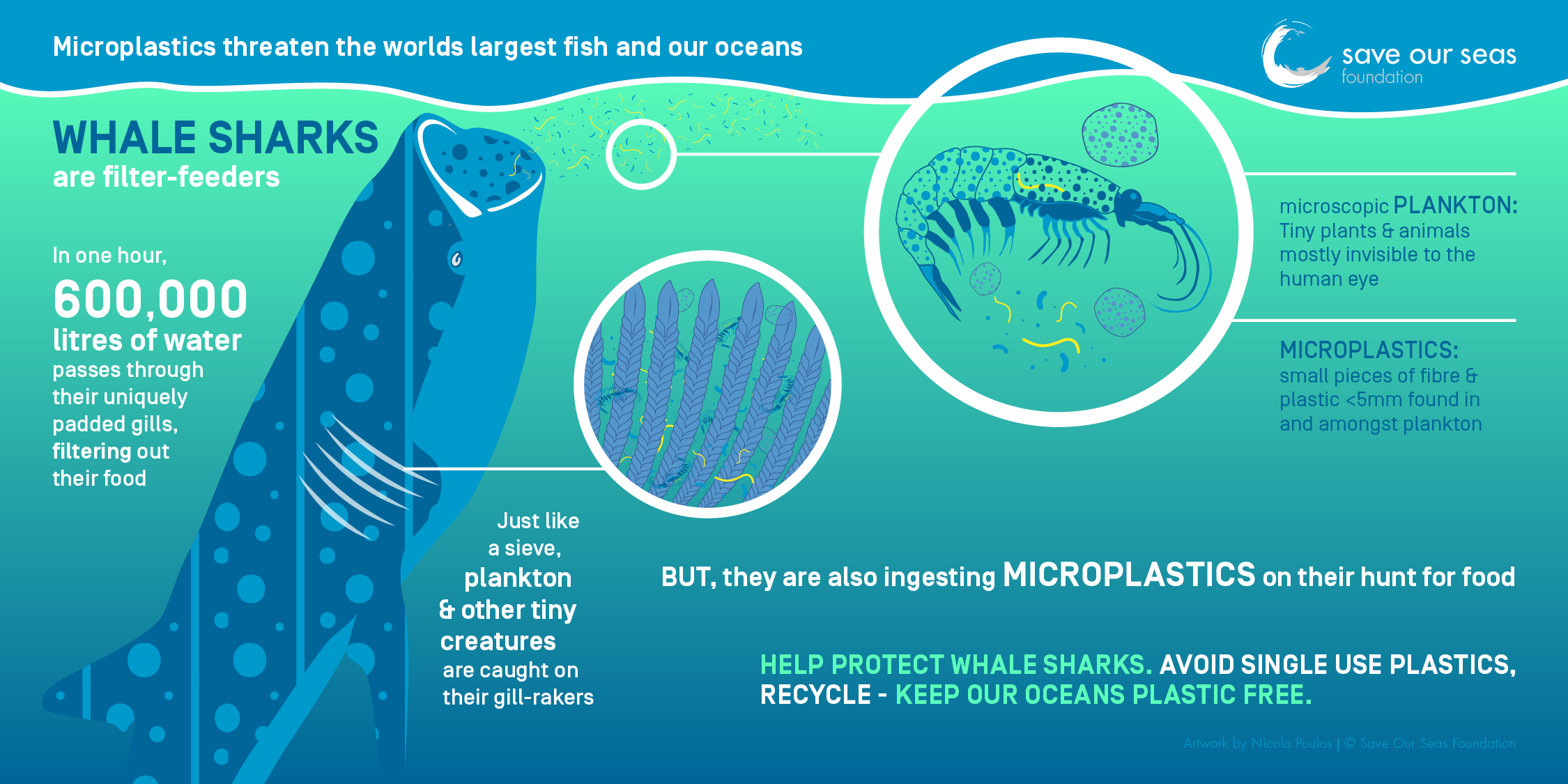
Artwork by Nicola Poulos | © Save Our Seas Foundation
Alina Wieczorek’s project Microplastics a macro-disaster? aims to investigate microplastic ingestion by the two largest fishes on our planet.
Jonathan Green’s project Secrets of the whale sharks of the Galápagos Marine Reserve aims to track whale sharks in the Galápagos and to understand more about where they may be giving birth and where the pups may be spending their formative years.
What can you do to help?
Simply by being here, reading this, you are on your way to doing better for your oceans, so well done! We encourage you to continue learning and reading from the vast resources you can find online and in your community. Share all these lessons and ideas with your family and friends, take steps to reduce your plastic waste or your impact on our oceans and maybe even look at supporting local organisations that are working towards making our oceans cleaner, safer and healthier through research, conservation and education.
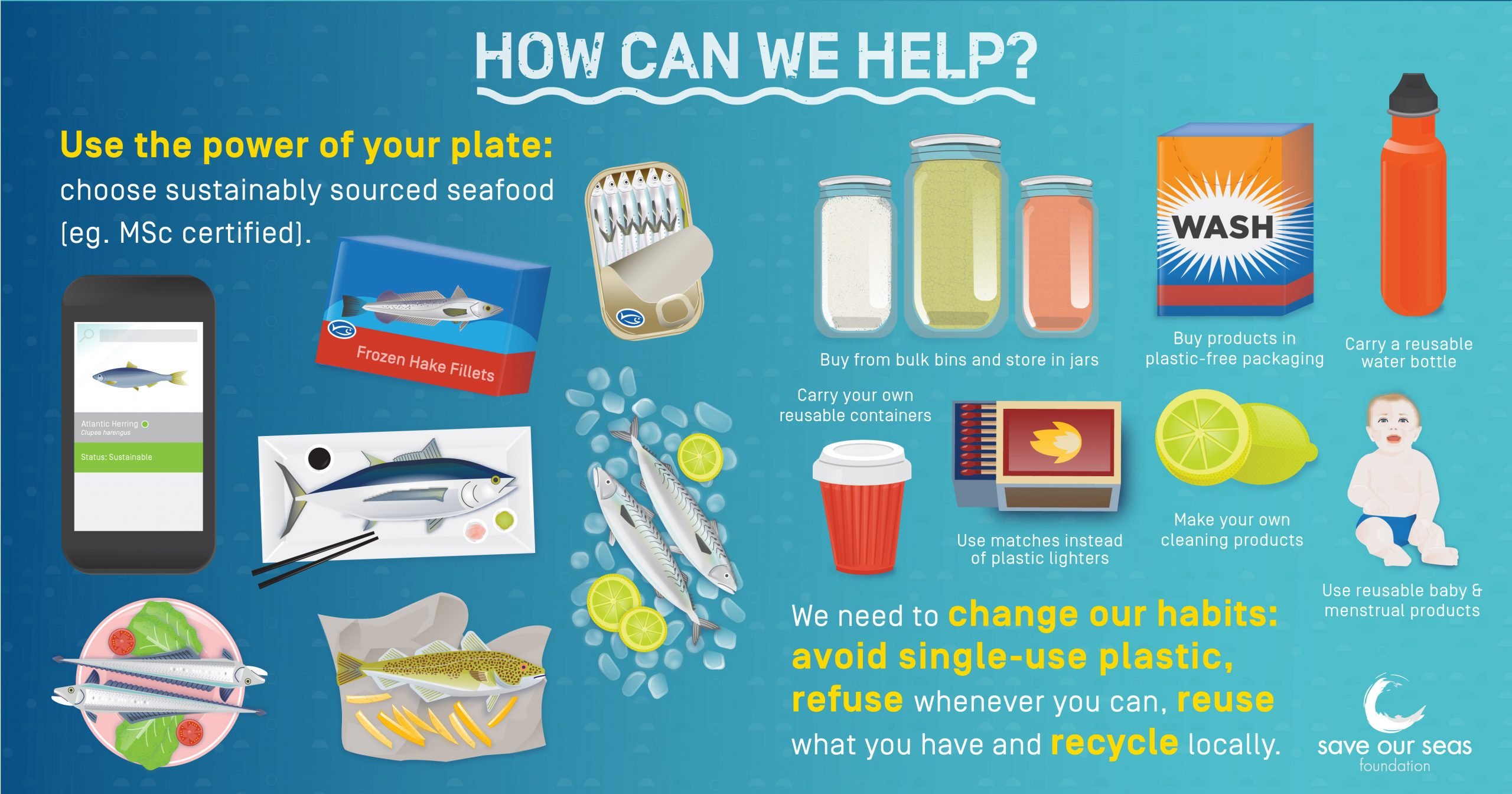
Artwork by Jamy Silver | © Save Our Seas Foundation
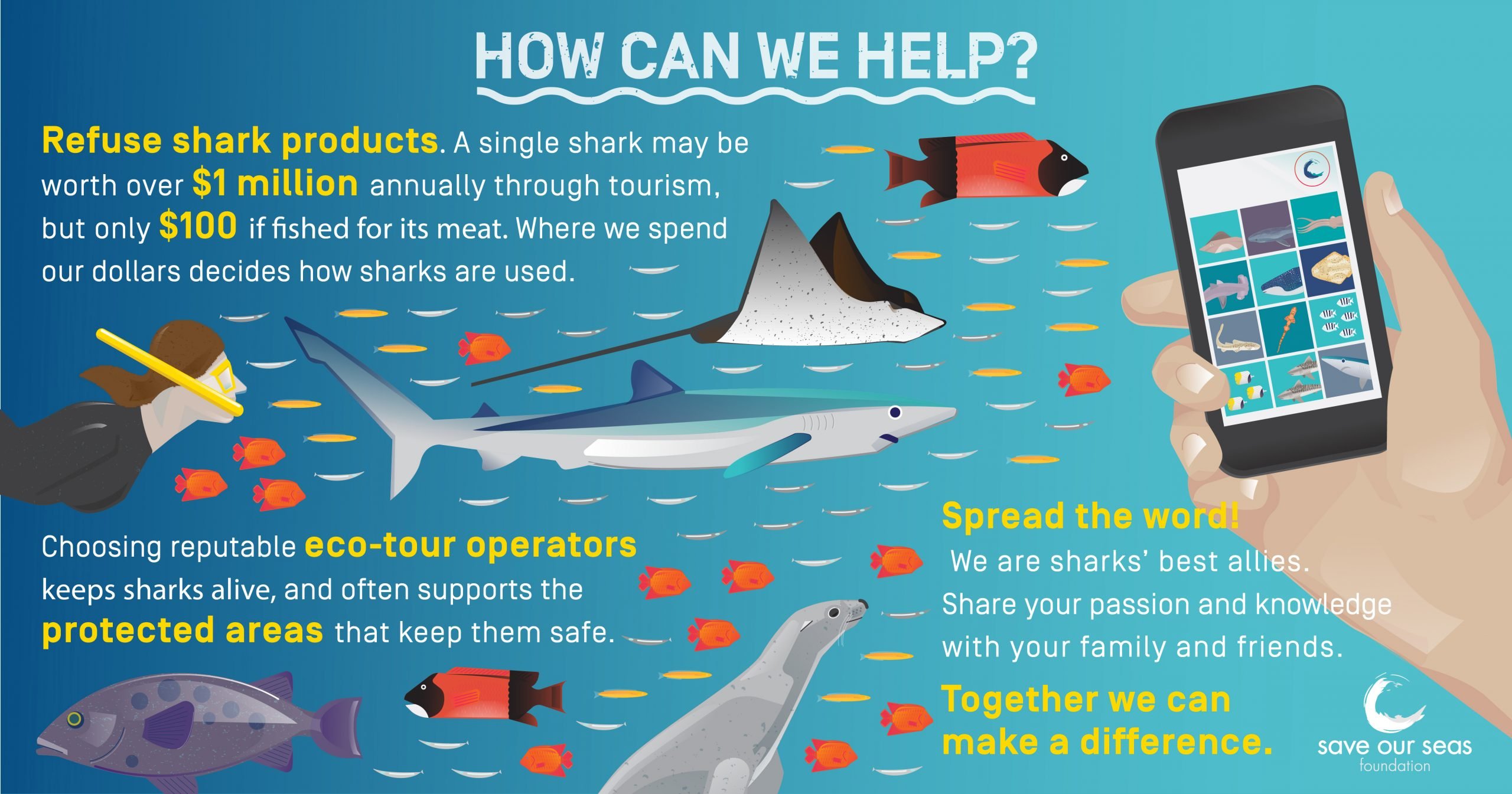
Artwork by Jamy Silver | © Save Our Seas Foundation
